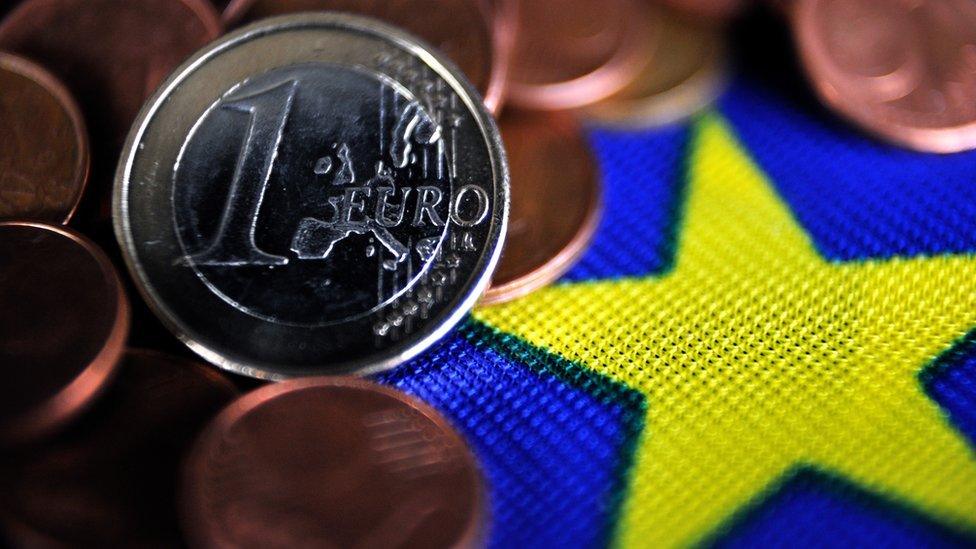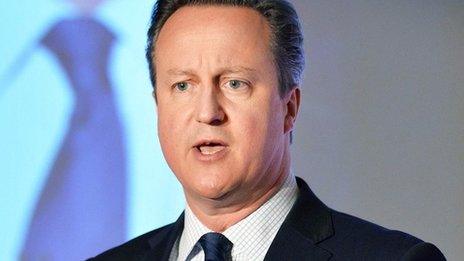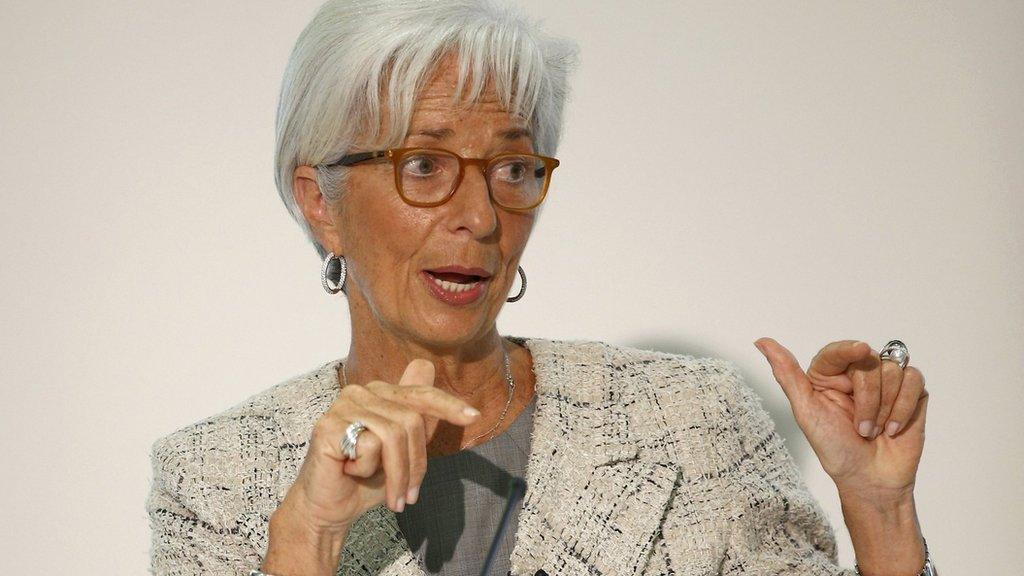Reality Check: Your questions answered
- Published

Reality Check asked for your questions and here are the answers to some of the things you've been emailing us about.
The question: Andrew Smith asks whether remaining in the EU will mean Britain will have to join the euro.
The answer: The UK negotiated a permanent opt-out from the European Monetary Union as part of the Maastricht Treaty, signed in 1992. Like any EU Treaty, this is a binding agreement between EU member states. So this means that it is up to Britain to decide whether to join the euro in future or not.
As part of the EU reform deal for the UK, agreed at the EU summit in February, the European Council reiterated the UK's entitlement "not to adopt the euro and therefore to keep the British pound sterling as its currency".
Things would look different if the UK left the European Union in June and decided to join again at a later date. The EU stipulates that all new members are expected to adopt the euro, if they meet the necessary criteria. The same rules would apply to the UK, unless it was able to negotiate a new opt-out.

The question: Frances Nugent wants to know whether the EU is banning British kettles.
The answer: The European Commission is planning the next round of products that will be regulated under the EU's Ecodesign Directive, external. This directive sets minimum requirements for how energy efficient products should be. Some products that have been already been regulated include vacuum cleaners. For example, since 1 September 2014, there has been a ban on vacuum cleaners rated above 1,600 watts.
Kettles are being considered, external under the directive, but, as of yet, no decision has been taken as to whether to regulate them. Even after kettles have been reviewed in this latest batch of products that are being looked at, they may not be subject to any new regulations or might just be given an energy label.

The question: Tony Daly from Wiltshire wants to know if workers' rights would be lost if we left the EU.
The answer: A significant amount of UK employment law comes from the EU, external. If the UK votes to leave the EU on 23 June then the UK government needs to decide which EU laws to keep, amend or scrap. So anything - including holiday pay, agency worker rights, paternity and maternity pay - could be under threat.
Employers' associations might seize the opportunity to try to get something done about some of the more controversial aspects of EU employment laws.
For example, the Institute of Directors was very unhappy about the European Court of Justice ruling that regular overtime be included in holiday pay, external.
And there are some voices supporting Brexit who want to limit the application of the Working Time Directive, which governs the hours employees in the EU can be asked to work.
But trade unions, the Labour Party and many Conservatives could oppose any such move.

The question: Ben Crowe wants us to explain if Prime Minister David Cameron's EU reform negotiations changed the way EU accounts are audited.
The answer: No, the prime minister's negotiations have not changed the way the EU accounts are audited. The EU accounts are scrutinised by the Court of Auditors. This is an independent body which checks whether the EU accounts correctly reflect the spending of the EU budget.
Around 80% of the EU budget is managed by member states themselves, and not by EU institutions. The EU transfers funds to the national treasuries and then the countries themselves decide which projects to spend the money on.
Every year since 2007, the auditors pointed out that EU countries, once they receive the EU funds, misuse about 4.4% of the total budget, according to the latest figures released in 2014.
Auditors have called on EU countries to take more care in their spending. In 2014, the court found that €666m (£524m) from the EU fund that is given to countries to finance projects in underdeveloped areas, was "poor value for money".

The question: Richard Bennett asks whether the EU stopped global companies asset-stripping British firms.
The answer: Asset-stripping occurs when private companies buy other companies in order to break them up. In 2010, the EU approved a directive that included rules to try to deter private companies from doing this. The directive came into effect in 2013 and will be reviewed by the Commission next year. The Financial Conduct Authority, external updated its rules in 2013 to include this directive in UK legislation.
But the UK had already brought in its own rules in 2011, after US based company, Kraft, took over Cadbury in 2010. These rules demanded more information from bidders about their intentions after the purchase, particularly on areas like job cuts.
The 2013 rules allowed companies to be protected from asset-stripping for two years after they were sold.
The Financial Conduct Authority said it had not carried out any analysis on the impact of the two sets of rules, so it is very difficult to measure what the EU rules have meant for British companies.
Keep your questions coming by email (realitycheck@bbc.co.uk) or via Twitter @BBCRealityCheck, external and we'll answer as many as we can before 23 June.



- Published13 May 2016

- Published15 April 2016

- Published22 February 2016
